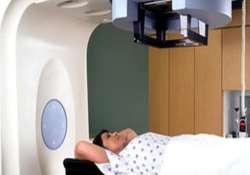Scientists find crucial gaps in breast cancer research
London : Scientists have discovered key gaps in breast cancer research pertaining to understanding of genetic changes in the development of tumour, a study said.In an article in BioMed Central's open access journal Breast Cancer

London : Scientists have discovered key gaps in breast cancer research pertaining to understanding of genetic changes in the development of tumour, a study said.
In an article in BioMed Central's open access journal Breast Cancer Research, leading scientists in the field reported on a gap analysis that critically assessed issues and new challenges emerging from recent breast cancer research, and proposed strategies for translating solutions into practice.
It is estimated that around 570,000 people are living with, or after, a diagnosis of breast cancer in the UK, and this number is expected to double by 2030.
Breast cancer, therefore, remains a significant challenge. Over 100 specialist breast cancer scientists and healthcare professionals reviewed a wide range of issues and challenges involved in breast cancer research, prevention and treatment.
Through facilitated discussions and consultation, including appraisal from experts and patients, they produced an account outlining ten major gaps and five strategic solutions, reports Science Daily.
The key gaps that were identified in the research paper included: an understanding of the genetic and epigenetic changes in normal breast development and during cancer, how to implement sustainable lifestyle changes through diet, exercise and weight management, and an understanding of how to optimise treatment for improved personalised therapy.
In an article in BioMed Central's open access journal Breast Cancer Research, leading scientists in the field reported on a gap analysis that critically assessed issues and new challenges emerging from recent breast cancer research, and proposed strategies for translating solutions into practice.
It is estimated that around 570,000 people are living with, or after, a diagnosis of breast cancer in the UK, and this number is expected to double by 2030.
Breast cancer, therefore, remains a significant challenge. Over 100 specialist breast cancer scientists and healthcare professionals reviewed a wide range of issues and challenges involved in breast cancer research, prevention and treatment.
Through facilitated discussions and consultation, including appraisal from experts and patients, they produced an account outlining ten major gaps and five strategic solutions, reports Science Daily.
The key gaps that were identified in the research paper included: an understanding of the genetic and epigenetic changes in normal breast development and during cancer, how to implement sustainable lifestyle changes through diet, exercise and weight management, and an understanding of how to optimise treatment for improved personalised therapy.